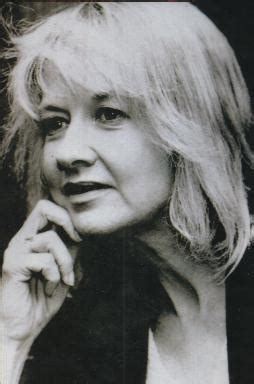A Quote by David Hare
The theatre is the best way of showing the gap between what is said and what is seen to be done, and that is why, ragged and gap-toothed as it is, it has still a far healthier potential than some poorer, abandoned arts.
Related Quotes
Any nation that expects to be ignorant and free," Jefferson said, "expects what never was and never will be." And if the gap between the educated and the uneducated in America continues to grow as it is in our time, as fast as or faster than the gap between the rich and the poor, the gap between the educated and the uneducated is going to be of greater consequence and the more serious threat to our way of life. We must not, by any means, misunderstand that.
To me the question right now is: How do I close that first three-quarters of the achievement gap, education gap, wealth gap? What gives me the best chance to do that? And I'm pretty darn sure that if America is a just society and treating people well right now, irrespective of past wrongs, that I'm going to close a big chunk of that gap. I've seen it.
The main issue [of the Scientific Revolution] is that the people in the industrialised countries are getting richer, and those in the non-industrialised countries are at best standing still: so the gap between the industrialised countries and the rest is widening every day. On the world scale this is the gap between the rich and the poor.
The gap between ideals and actualities, between dreams and achievements, the gap that can spur strong men to increased exertions, but can break the spirit of others -- this gap is the most conspicuous, continuous land mark in American history. It is conspicuous and continuous not because Americans achieve little, but because they dream grandly. The gap is a standing reproach to Americans; but it marks them off as a special and singularly admirable community among the world's peoples.
Pay attention to the gap - the gap between two thoughts, the brief, silent space between words in a conversation, between the notes of a piano or flute, or the gap between the in-breath and the out-breath. When you pay attention to those gaps, awareness of 'something' becomes - just awareness. The formless dimension of pure conciousness arises from within you and replaces identification with form.
Nowadays, we are confronted by a huge gap between rich and poor. This is not only morally wrong, but practically a mistake. It leads to the rich living in anxiety and the poor living in frustration, which has the potential to lead to more violence. We have to work to reduce this gap. It's truly unfair that some people should have so much while others go hungry.
Does that mean that all vestiges of past discrimination would be eliminated, that the income gap or the wealth gap or the education gap [between Afro-Americans and white] would be erased in five years or 10 years? Probably not, and so this is obviously a discussion we've had before when you talk about something like reparations.





































